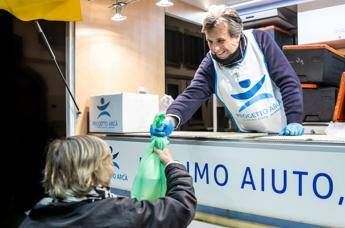
Richard Thompson, who first identified microplastics, warns that without international agreement on a global treaty, plastic pollution could triple by 2060.
Richard Schiffman reports for Yale Environment 360.
In short:
- Microplastics, discovered by Thompson in 2004, are now found in ecosystems worldwide, posing threats to marine life and humans.
- Plastic production has doubled in the last two decades, and without action, it could triple by 2060, causing irreversible environmental harm.
- Thompson stresses the need for safer plastic designs and calls for strong global regulations at the upcoming treaty talks in South Korea.
Key quote:
“Nobody’s saying there’s no safe way to use plastics. It’s just that we need to start making them to be safer and more sustainable than we have done so far.”
— Richard Thompson, professor at the University of Plymouth
Why this matters:
Without a bold international agreement, we'll keep flooding the planet with a material that ecosystems and our bodies simply can’t handle. And while the environmental damage is obvious, the health impacts—from polluted air to microplastics entering our food chain—are only beginning to emerge. Read more: “Plastic will overwhelm us:” Scientists say health should be the core of global plastic treaty.

 2 months ago
30
2 months ago
30


